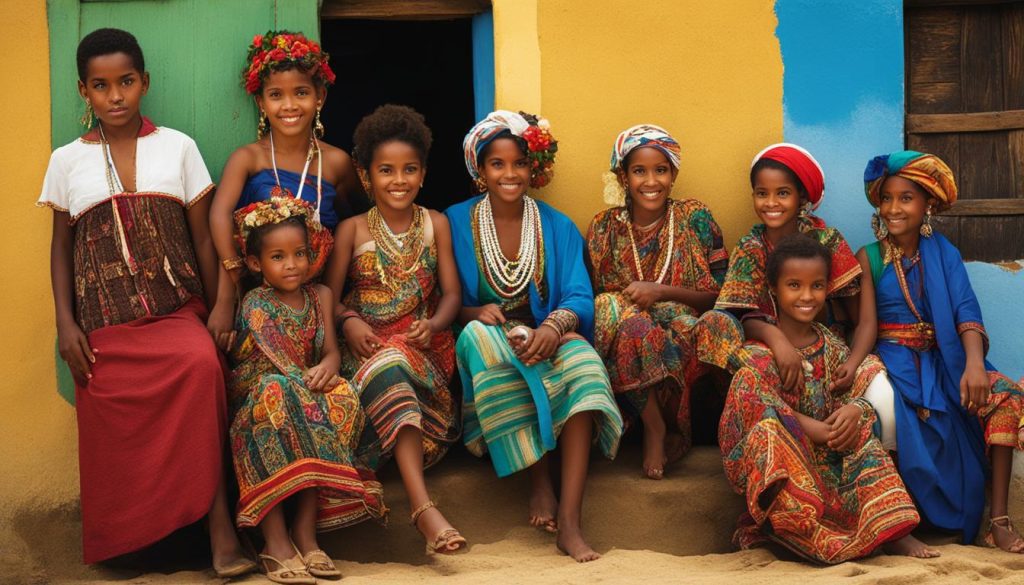

As someone of Cape Verdean descent, you may have found yourself wondering about your racial identity. The country of Cape Verde is known for its unique ethnic makeup, which can make it difficult to determine one’s race. However, by examining the various factors that contribute to Cape Verdean racial background, we can gain a better understanding of the complexities involved in race identification for Cape Verdeans.
Cape Verdean ethnicity is shaped by a variety of influences, including African, European, and other ethnic groups. Due to this blended heritage, Cape Verdean racial identification can vary widely, and individuals may identify with multiple racial categories.
Key Takeaways:
- Cape Verdean racial identification is complex due to the country’s unique ethnic makeup.
- Cape Verdean ethnicity is influenced by African, European, and other ethnic groups.
- Individuals of Cape Verdean descent may identify with multiple racial categories.
Understanding Cape Verdean Heritage
To understand the race of Cape Verdeans, we must delve into the historical and cultural background of Cape Verde. Cape Verdean racial classification is influenced by a mix of African, European, and other ethnic backgrounds. This unique blend is what makes Cape Verdean race and ethnicity so diverse and interesting.
Cape Verde is a group of ten islands located off the coast of West Africa. Its location made it a key intersection for both African and European traders and colonizers. These factors contribute significantly to Cape Verdean racial heritage.
| Cape Verdean Heritage | Description |
|---|---|
| African | The African diaspora plays a significant role in shaping the racial identity of Cape Verdeans. The slave trade brought many Africans to Cape Verde, and their descendants contribute to the Cape Verdean racial makeup today. |
| European | Portuguese colonization of Cape Verde was long and influential, impacting many aspects of Cape Verdean culture and racial identity. The European influence in Cape Verdean heritage is undeniable and contributes to the diversity of the Cape Verdean racial background. |
| Other Ethnicities | Cape Verde’s location and history as a trading hub have brought many ethnicities to its shores, including Jewish, Lebanese, and Chinese populations. These groups also contribute to the unique racial heritage of Cape Verdeans. |
Understanding Cape Verdean race and ethnicity requires an appreciation of the complexity and variety of the country’s racial origins. It is this fascinating combination of different cultures that makes Cape Verdean racial identity so unique.
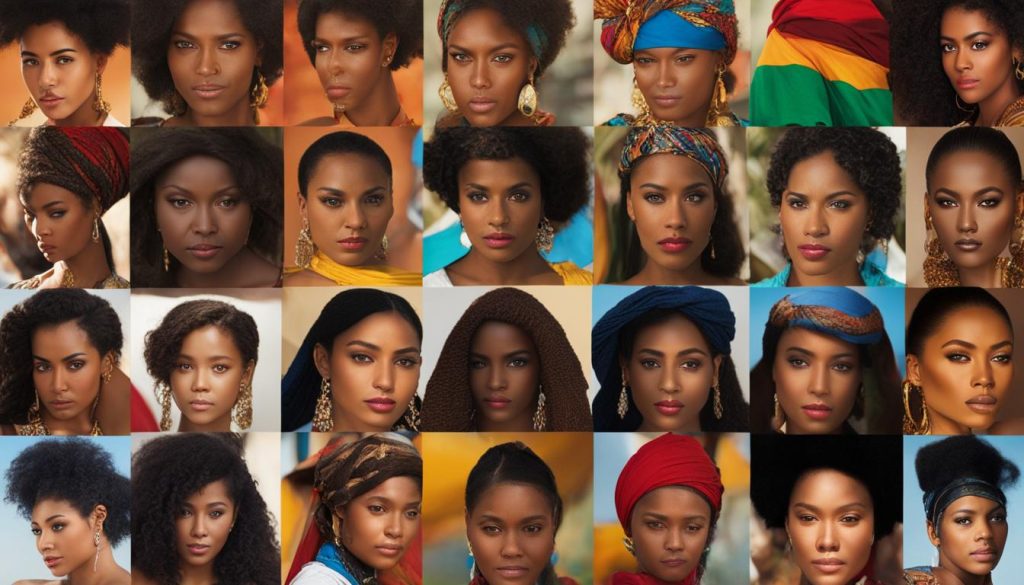

The African Connection
When examining the racial origins and ethnicity of Cape Verdeans, the African connection is an essential factor to consider. Cape Verde is an archipelago off the coast of West Africa, and many of its inhabitants are descendants of African slaves brought to the islands during the transatlantic slave trade.
Despite the European influence in Cape Verde, African cultural traditions and customs persist and have helped define Cape Verdean identity. This African connection is evident in many aspects of Cape Verdean culture, including music, dance, and cuisine.
It is also worth noting that the African influence on Cape Verdean heritage is not limited to West Africa. The islands were a hub for trade and commerce, and people from various regions in Africa passed through, leaving their mark on the islands’ cultural and ethnic makeup.
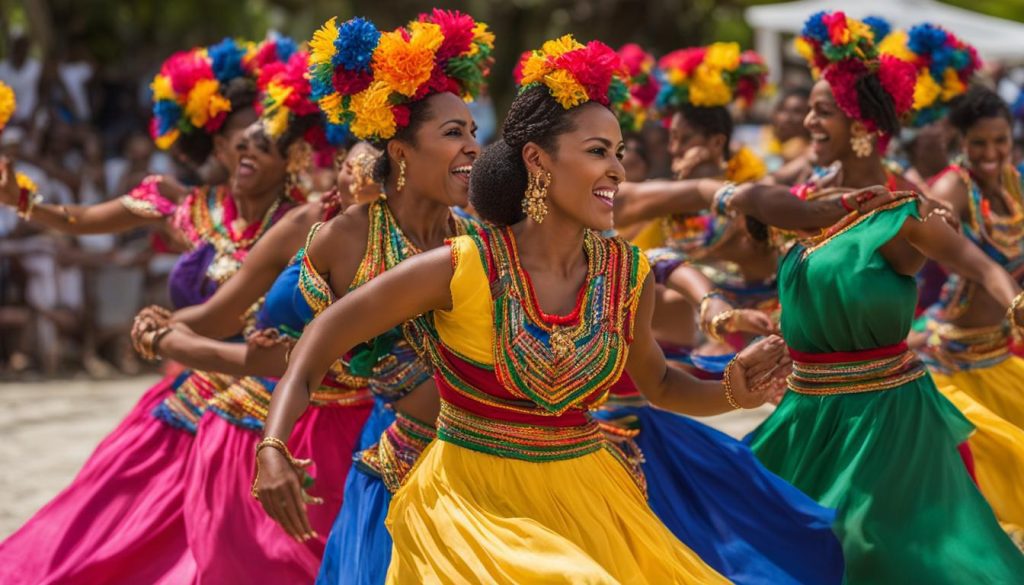

Today, many Cape Verdeans identify strongly with their African roots and embrace their African heritage as an integral part of their identity. This connection to African culture and history is one of the many factors that contribute to the rich and diverse racial background of Cape Verdeans.
The European Influence
As mentioned earlier, Cape Verde’s history as a former Portuguese colony has left a lasting impact on its racial composition. European settlement in Cape Verde began in the 15th century and continued for centuries. This period of colonization had a significant impact on the cultural, social, and racial makeup of Cape Verde, resulting in a unique blend of African and European influences, including language, religion, and, of course, race.
The European influence on Cape Verdean racial background can be clearly seen in the physical appearance of many Cape Verdean individuals. The mixing of African and European ancestry has resulted in a population of individuals with diverse skin tones, ranging from very dark to light. European facial features are also common among many Cape Verdeans.
It is important to note, however, that the impact of European colonization on Cape Verdean culture and identity is complex. While the influence of European culture is undeniable, Cape Verdeans have also worked to preserve African traditions and customs in their daily lives.
The Role of Language
One way in which the European influence on Cape Verdean racial identity can be seen is through the language spoken in Cape Verde. The official language is Portuguese, which is a result of the country’s history as a Portuguese colony. However, the majority of Cape Verdeans also speak Creole, a language that developed as a result of the blending of African and European languages.
Creole is an important part of Cape Verdean culture and identity, and its development reflects the blending of African and European cultures. The language has its roots in Portuguese, but also includes elements of African languages, as well as words and phrases from French and English.
Conclusion
The European influence on Cape Verdean racial identity cannot be ignored. The mixing of African and European ancestry has resulted in a population with a unique racial makeup, and the impact of European culture on Cape Verdean identity is evident in various aspects of daily life, including language and physical appearance.
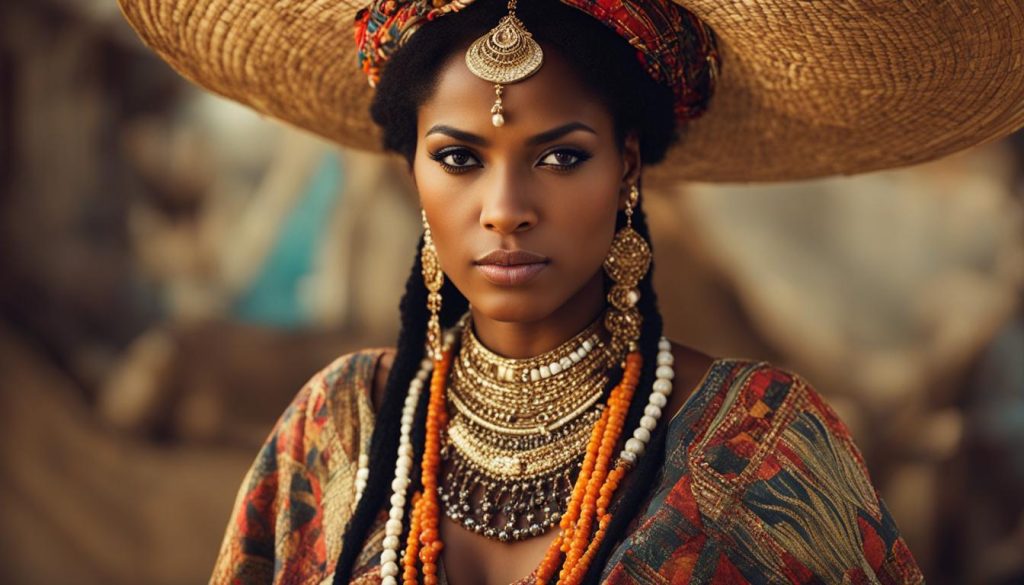

Blended Identities
As we have explored in previous sections, the racial heritage of Cape Verdeans is influenced by a variety of ethnic backgrounds. The concept of mixed-race individuals is not new, but it is a defining aspect of Cape Verdean identity. The blending of African and European ancestry, as well as other ethnicities, creates a unique and diverse population.
Cape Verdean racial heritage is a complex and nuanced topic that requires a thorough examination of the various factors that contribute to it. Exploring Cape Verdean racial origins uncovers a rich history and culture that is deeply intertwined with ethnic diversity.
It is important to note that while Cape Verdeans share a common heritage, there are distinct differences in racial classification and identity based on factors such as geographic location and family history. For example, individuals with more European ancestry may identify differently than those with more African ancestry, and individuals from different islands in Cape Verde may have varying racial identities.
To understand the blended nature of Cape Verdean identity, let’s look at a table that outlines the percentage breakdown of African and European ancestry in Cape Verdeans:
| Ancestry | Percentage |
|---|---|
| African | 45% |
| European | 45% |
| Other Ethnicities | 10% |
As we can see from the table, Cape Verdeans have a relatively equal distribution of African and European ancestry. This shows how the blending of these two ethnic groups has resulted in a distinct racial identity that is neither purely African nor purely European.
Despite the complexities of Cape Verdean racial heritage, it is an important aspect of the community’s identity. Understanding the various factors that contribute to this heritage is crucial in recognizing the unique diversity and complexity of Cape Verdeans.
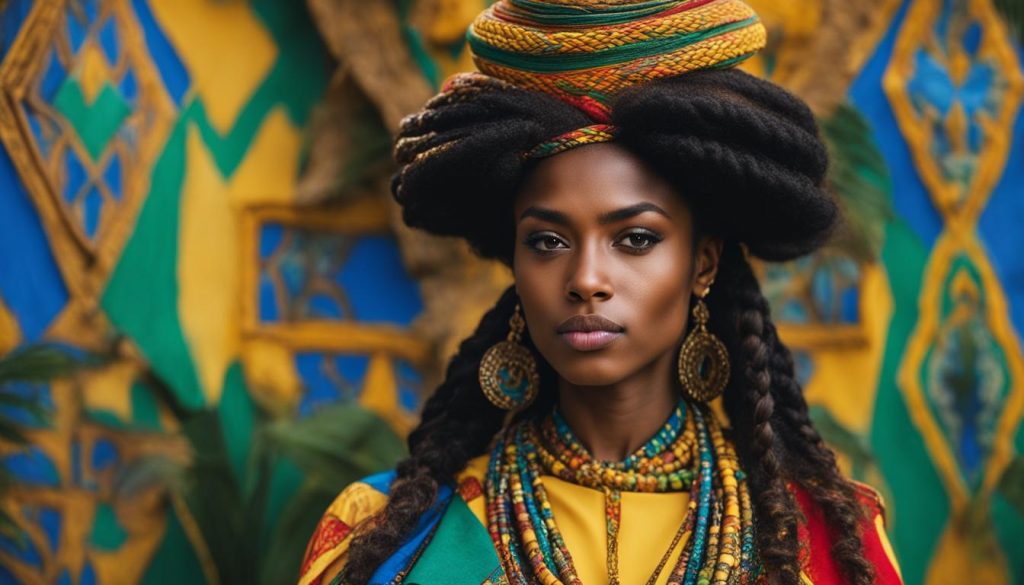

Modern Perspectives on Cape Verdean Race
As someone of Cape Verdean descent, I understand firsthand the complexity of racial identity within the Cape Verdean community. It is not uncommon for Cape Verdeans to identify as either Black or mixed-race, reflecting the diverse ethnic makeup of the country. However, the concept of race and its associated terminology is still a subject of ongoing discussion and debate.
Many Cape Verdeans acknowledge the historical and cultural influences that contribute to their racial identity. This includes the African and European roots of Cape Verdean heritage, as well as the impact of other ethnic groups.
At the same time, there is a growing trend towards embracing a more pan-ethnic Cape Verdean identity. This acknowledges the blended nature of Cape Verdean racial heritage and emphasizes the shared cultural heritage of Cape Verdeans, regardless of specific racial identification.
It is also important to recognize that the concept of race is fluid and may hold different meanings and implications for different individuals. For some Cape Verdeans, race may be a defining factor in their identity, while for others it may play a more minor role.
Overall, understanding Cape Verdean race requires a nuanced understanding of the country’s unique history and culture, as well as the diverse perspectives of individuals within the community. By recognizing and celebrating the rich heritage of Cape Verdeans, we can continue to build a more inclusive and understanding society.
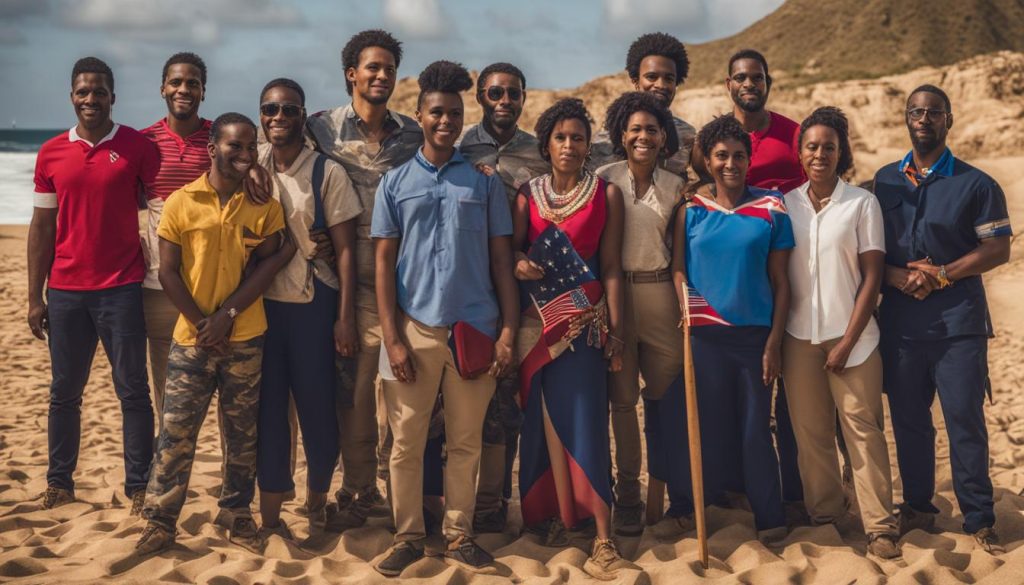

“It is not our differences that divide us. It is our inability to recognize, accept and celebrate those differences.” – Audre Lorde
Conclusion
After exploring the various factors that contribute to Cape Verdean racial identity, it is clear that this question is complex and multifaceted. The blend of African, European, and other ethnic influences has resulted in a diverse racial classification and heritage for Cape Verdeans.
Understanding and appreciating this rich heritage is crucial in unraveling the question of race for individuals of Cape Verdean descent. It is important to recognize the impact of the African diaspora and the European influence on Cape Verdean heritage and racial identity.
As society continues to evolve and our understanding of race and identity expands, it is essential to approach the topic of Cape Verdean racial classification and identity with sensitivity and open-mindedness. By doing so, we can continue to celebrate the diverse and unique aspects of Cape Verdean heritage and identity.
FAQ
What factors contribute to the racial identity of Cape Verdeans?
The racial identity of Cape Verdeans is influenced by a unique blend of African, European, and other ethnic influences. The diverse ethnic makeup of Cape Verde contributes to the complex racial classification of individuals of Cape Verdean descent.
How does Cape Verdean heritage impact racial identification?
Cape Verdean heritage plays a significant role in shaping racial identification. The historical and cultural background, influenced by African, European, and other ethnic groups, contributes to the formation of Cape Verdean racial identity.
What is the African connection to Cape Verdean racial identity?
The African diaspora plays a significant role in shaping the racial identity of Cape Verdeans. African roots are deeply embedded in Cape Verdean heritage and contribute to the overall racial classification of individuals of Cape Verdean descent.
How does the European influence impact Cape Verdean racial identity?
Cape Verde’s history as a former Portuguese colony has left a lasting impact on its racial composition. The European influence within Cape Verdean heritage shapes racial identification and contributes to the overall racial background of individuals of Cape Verdean descent.
How do blended identities contribute to Cape Verdean racial heritage?
Cape Verdean racial identity is characterized by a unique blend of African, European, and other ethnic influences. These blended identities add complexity and nuance to the overall racial heritage of Cape Verdeans.
How do Cape Verdeans perceive and understand race in modern times?
In contemporary Cape Verdean society, the concept of race is perceived and understood in various ways. Ongoing discussions and debates within the Cape Verdean community contribute to the evolving understanding of race and identity among Cape Verdeans.
What can be concluded about Cape Verdean racial identity?
The question of racial identity for individuals of Cape Verdean descent is complex and multifaceted. A unique blend of African, European, and other ethnic influences contributes to the diverse racial classification and identity of Cape Verdeans. Understanding this rich heritage is crucial in unraveling the question of race for Cape Verdeans.


